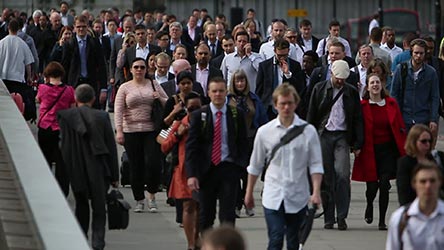 People fear change. This is a universal constant. Change requires that people move into the unknown, which makes people uncomfortable. However, when change is happening, you have to adapt or be left behind. That is what is happening with the economy and the workplace. To thrive in the new economy you have to accept that things are changing.
People fear change. This is a universal constant. Change requires that people move into the unknown, which makes people uncomfortable. However, when change is happening, you have to adapt or be left behind. That is what is happening with the economy and the workplace. To thrive in the new economy you have to accept that things are changing.
Big business isn’t what it used to be. According to the Small Business Administration 47.4% of people in the United States are employed in small business. 99.9% of all U.S. businesses are classified as small business. The average person changes jobs every three years. The days of getting a job out of college and staying there until retirement have been gone for a while, yet people still act as though that is the norm.
The Gig Economy is prevalent. 44 million Americans have a side job. Whether it is acting as a freelancer in their industry or something completely different like driving for Uber or renting out a room on Airbnb, people are generatring extra income. In many cases, people leave their day job for their side hustle when it can support them. More importantly, businesses are hiring people on a project basis more and more, rather than bringing them on staff.
Competition is tight. Freelancers are no longer competing with the man down the street. Whether it is design, I.T., marketing, consulting or dozens of other jobs that can be done remotely, competition is global. That means that freelancers are not being paid what they once did. Workers from India, China, The Philippines and other places have flooded the market with low-priced talent. Freelancers have to adapt to be able to provide low-cost, high-quality services in order to survive.
To thrive in business, the first step is to understand the circumstances that you are operating in. The next step is to understand that what worked in the past may not work as the economy evolves.


Connect With Us